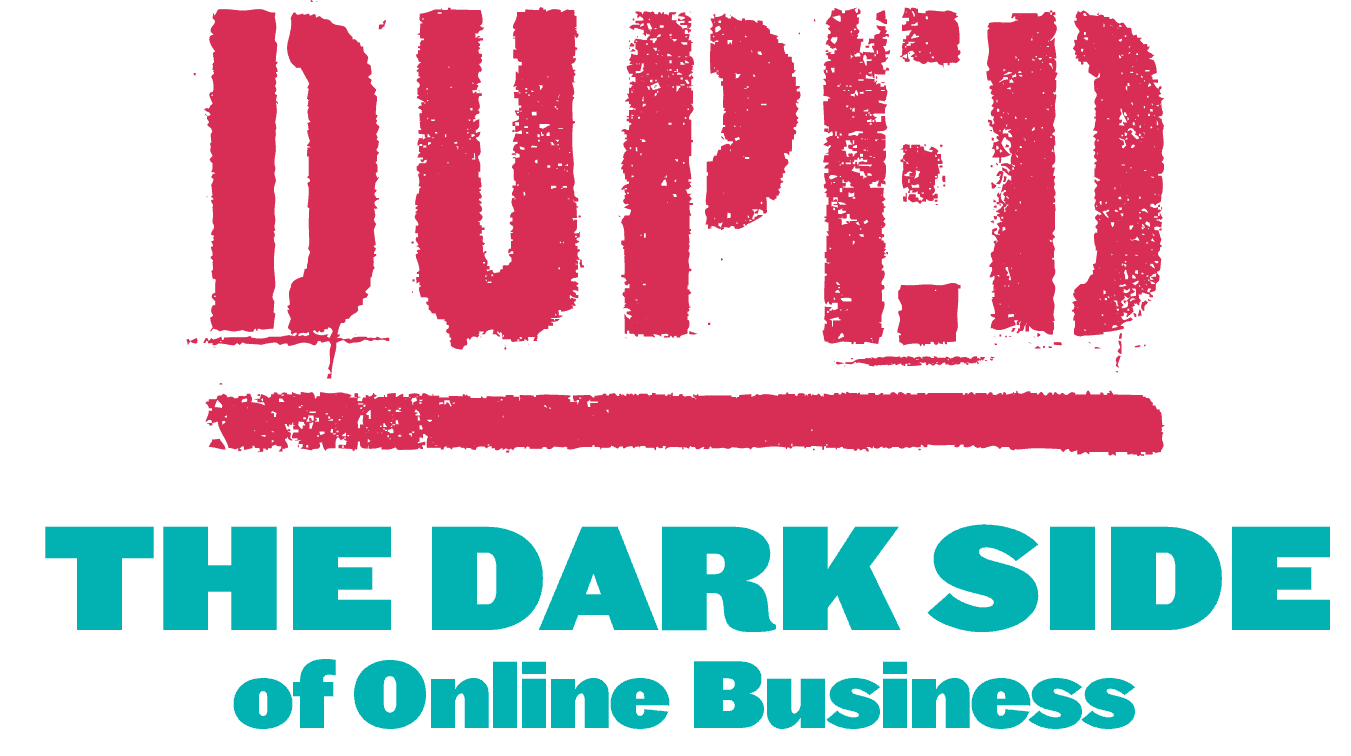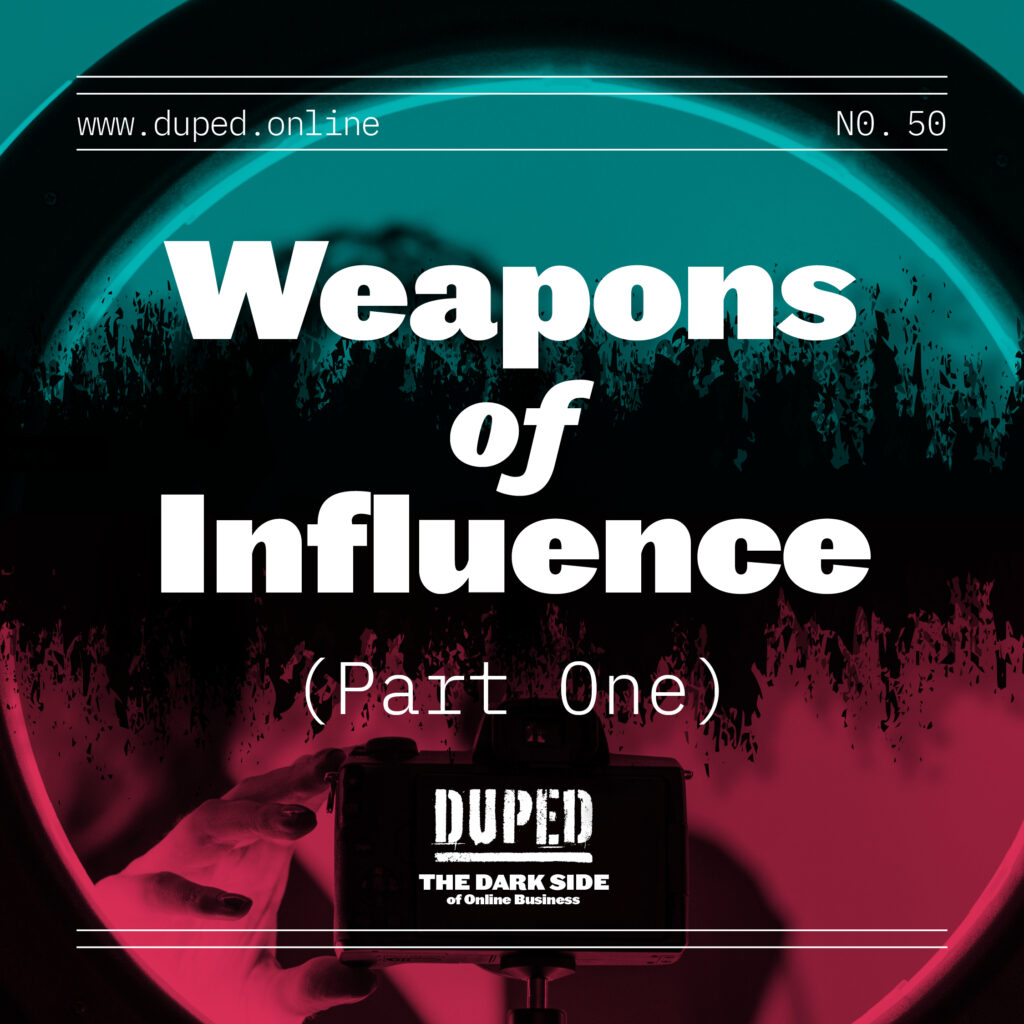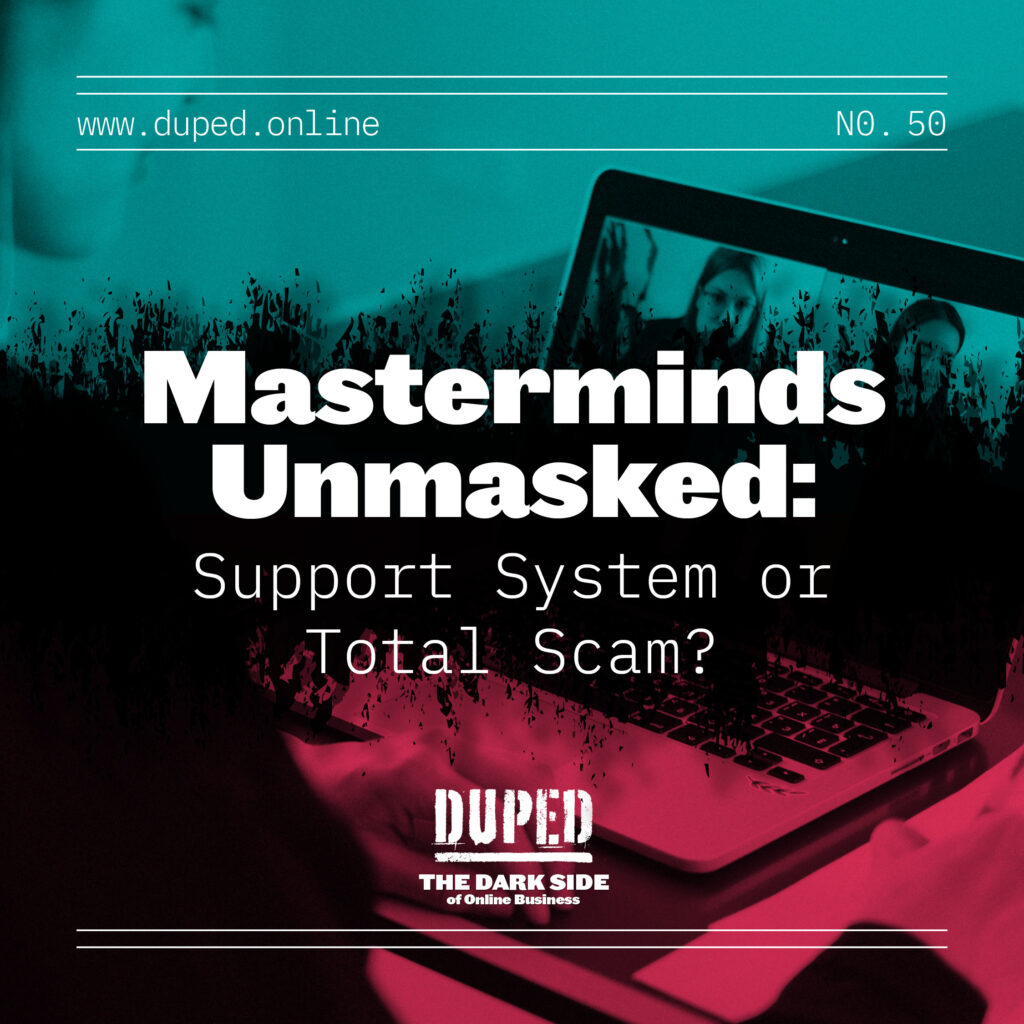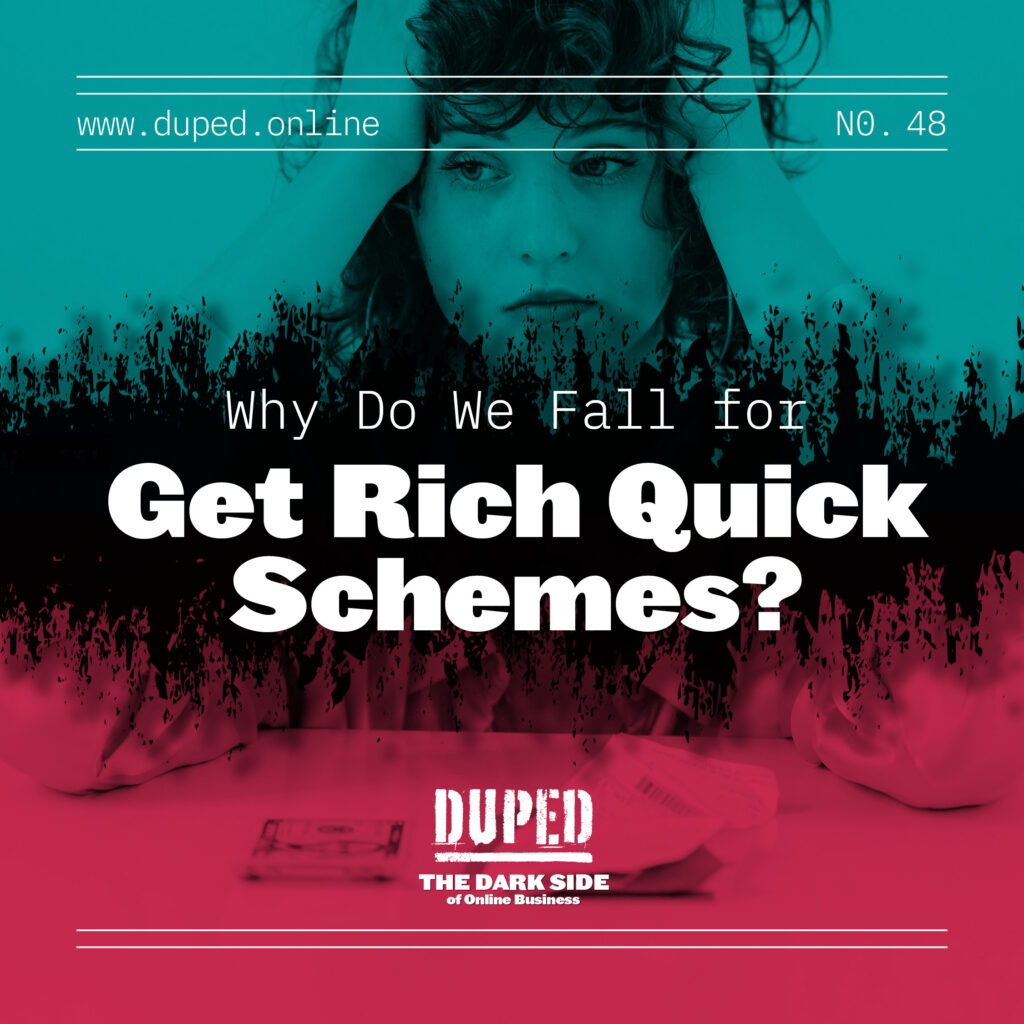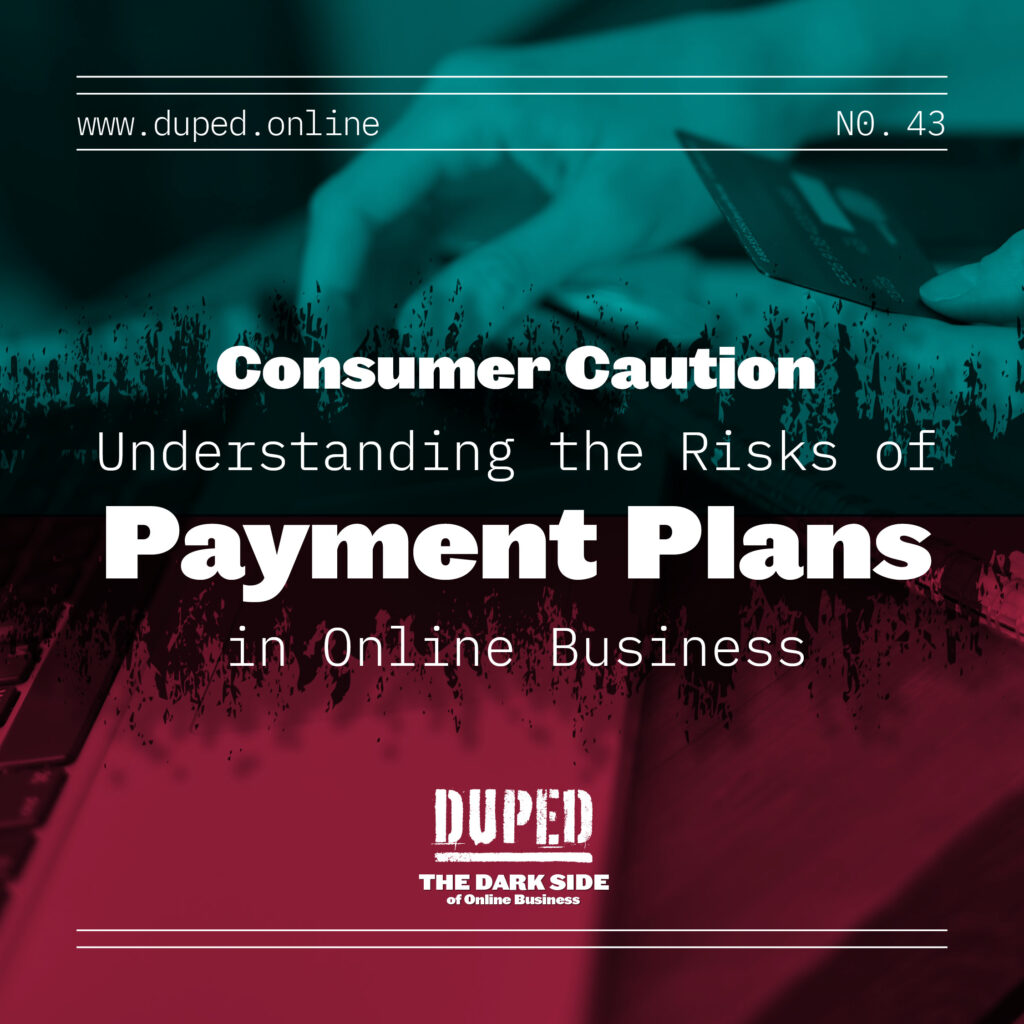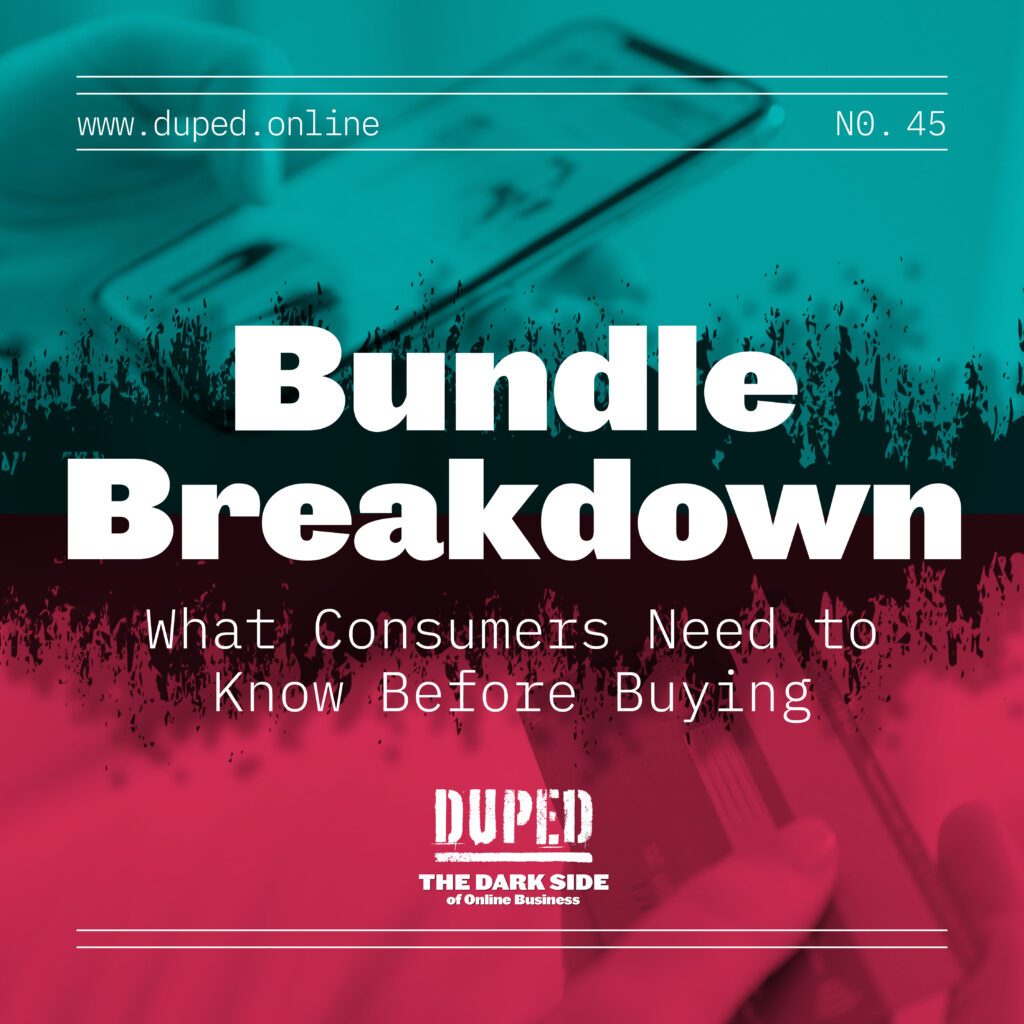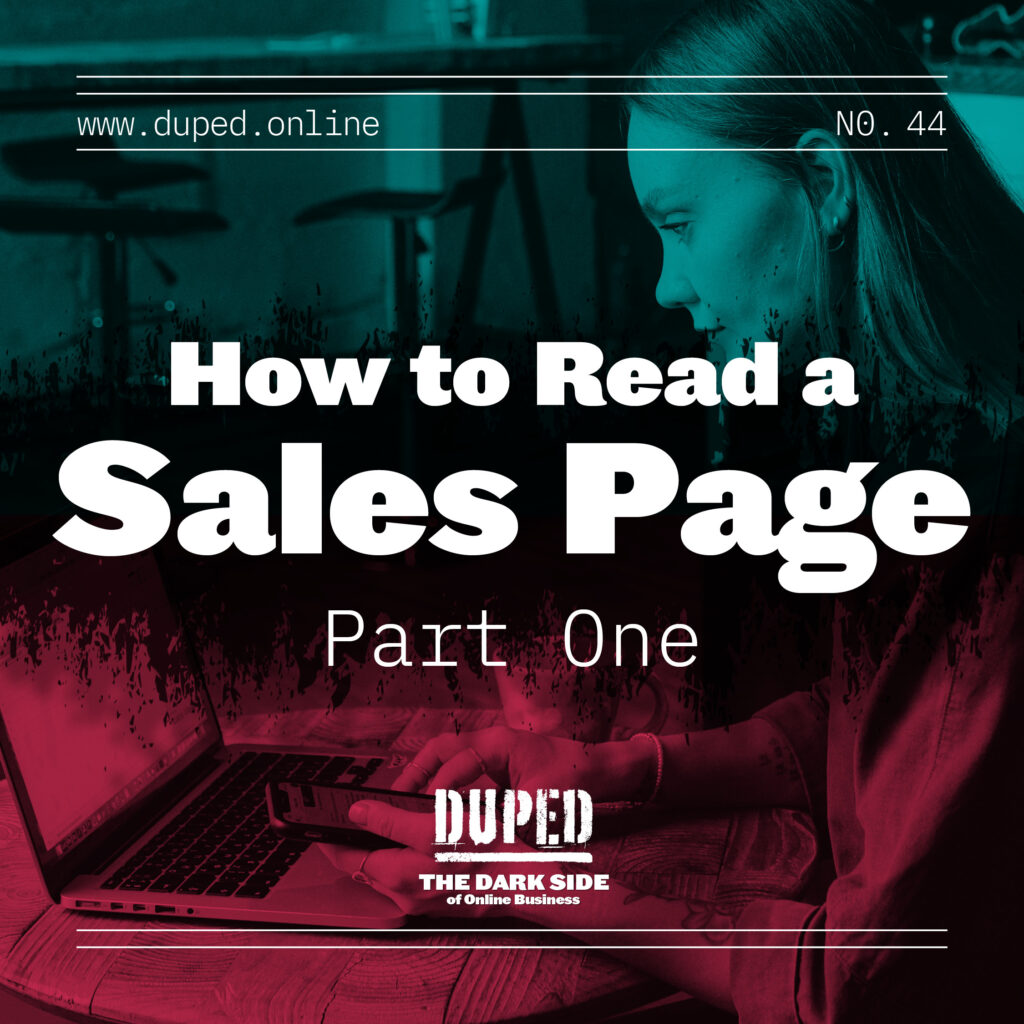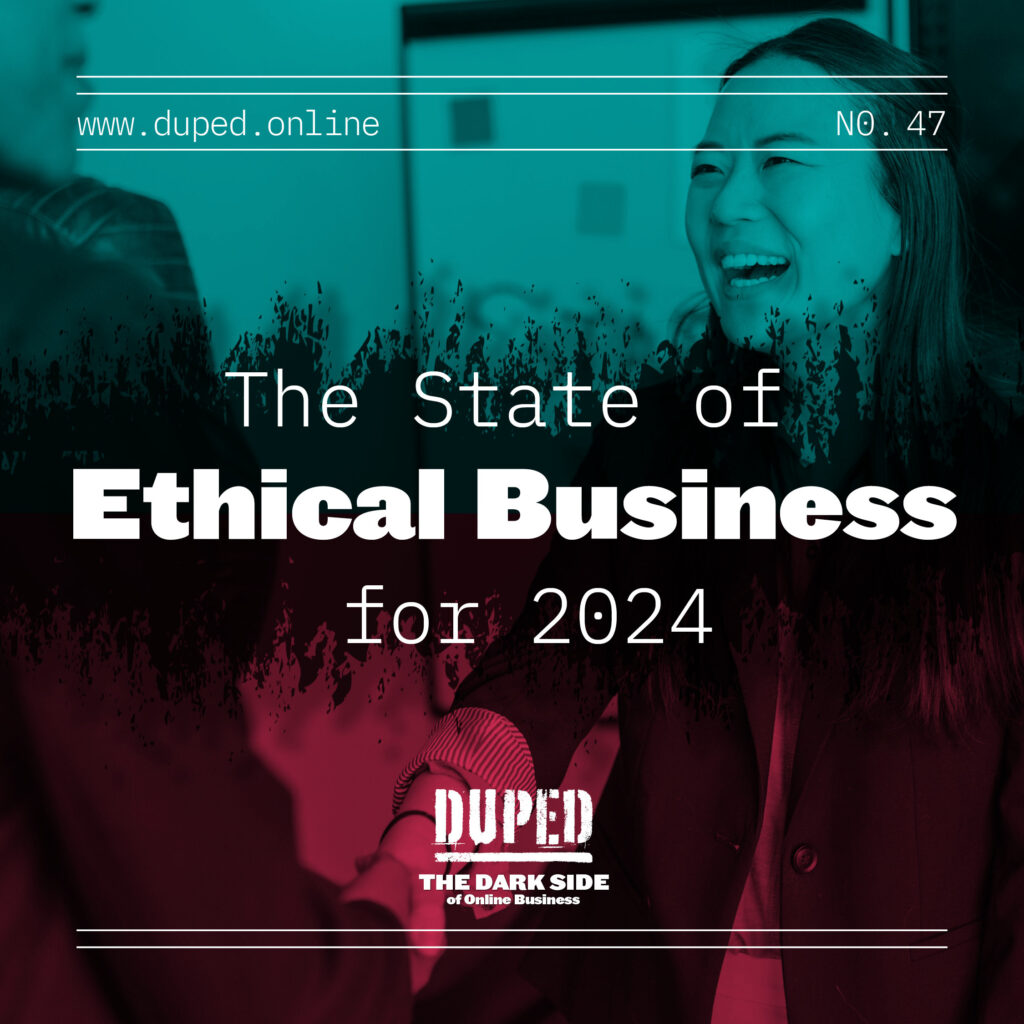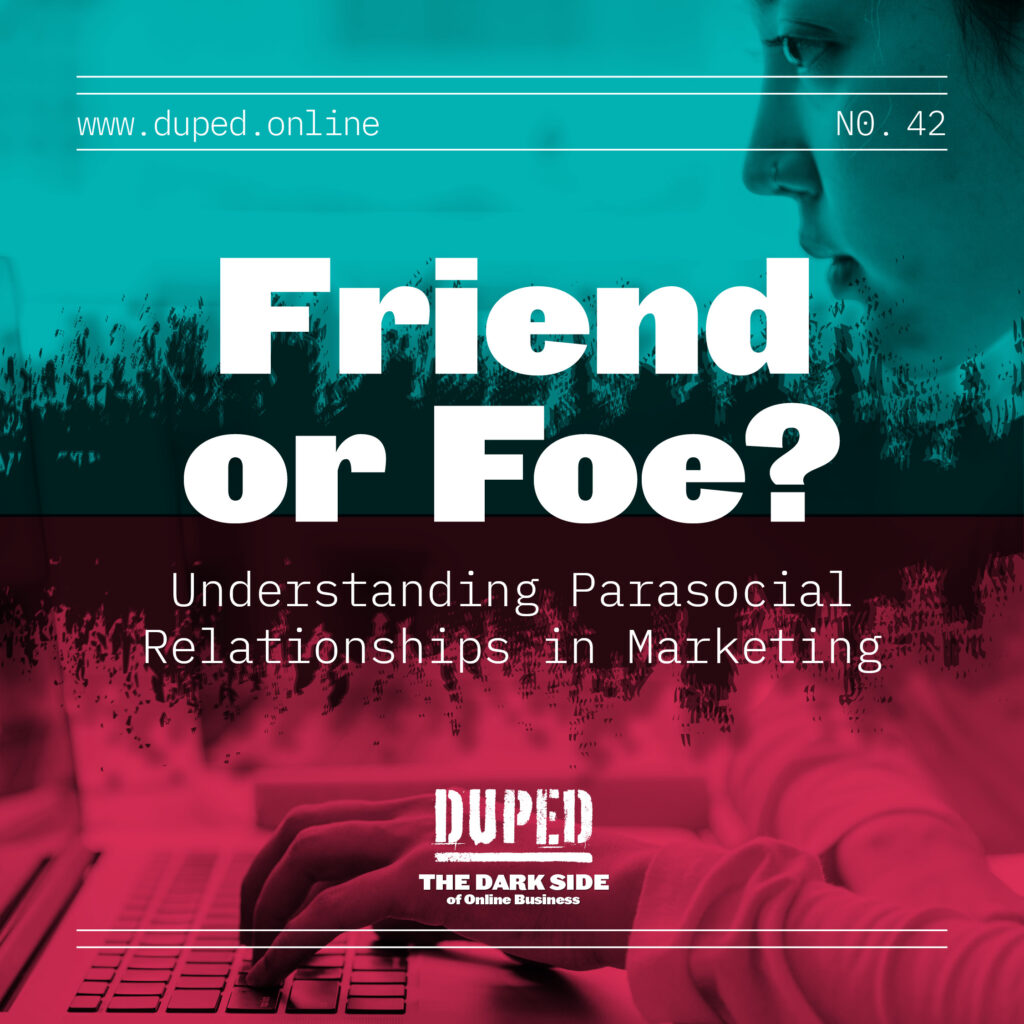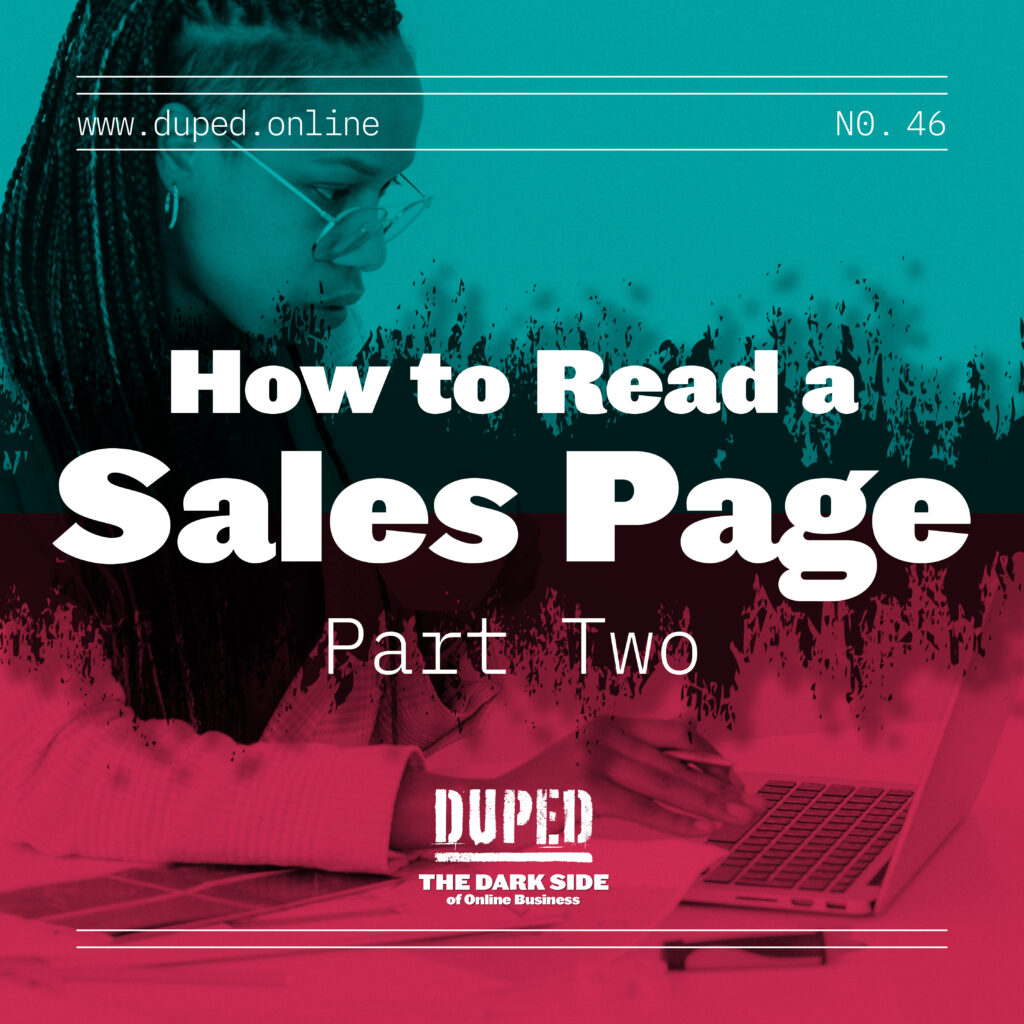
How To Read a Sales Page (Part 2)
Sales pages are so long and drawn out that there’s no way we could cover all the manipulative shenanigans in one episode. We are back with part two – so let’s do it!

We are back with the second part of the two-part series about how to read a sales page. As a reminder in part one, we covered:
- Program promises
- Agitating Pain Points
- What’s the solution REALLY?
Those sections are usually what we read first on a sales page, but the manipulative fuckery continues as you scroll to the bottom.
As a reminder, the longer the sale page, the greater the likelihood you won’t be able to make a reasoned decision. These sales pages are designed to wear your brain out so you can’t make a rational decision but instead buy on what social triggers like scarcity, liking and authority (Cialdini, Influence), not on if this service or program actually solves a problem.
In this episode, we will discuss the About section, testimonials, FAQs, value stacks, and bonuses.
Let’s get to it.
About Section
In the Rise of the Fake Expert episode, we did a deep dive into the issues of being “just one step ahead of your clients” or relying on personal experience alone to teach something.
When you start reading someone’s “about me” section on their sales page, ask yourself, “What makes them an expert?” or “Why is this person credible?”
Is it because they’ve studied the topic? Worked with clients for years? Or does it raise red flags like:
- Bull-shit backstory, aka rags to riches.
- Rely on income claims or how much money they make.
- Is their about section more about you and your pain points & not about them?
- If they mention a coach or mentor, check out that coach to see how they market and what they sell.
- Do they have a proven process or formula for success?
Realize that follower count and income claims do not make someone an expert. Their ability to apply their expertise to various situations is a sign of a true expert.
If you have doubts about their expertise, it’s time to slow down and not buy.
Testimonials
Way back in episode 16 we talked about Critical Thinking and all the ways we are encouraged not to use that skill particularly when it comes to testimonials. Testimonials are used as a form of social proof that a program gets a specific result. In online business, testimonials usually come in the form of income claims.
It can be impressive to look at the testimonials, See all of the results or endorsements from other celebrity entrepreneurs, and think, “Wow, this program is going to be the THING that catapults my business.”
Is it, or is it survivorship bias? We first talked about survivorship bias back in our episode on Vetting Coaches
The term survivorship bias was first coined by Abraham Wald. DecisionLab explains it as follows: “Survivorship bias is a cognitive shortcut that occurs when a visible successful subgroup is mistaken as an entire group, due to the failure subgroup not being visible. The bias’ name comes from the error an individual makes when a data set only considers the “surviving” observations, without considering those which didn’t survive.”
Here’s what to think about as you read testimonials
- Remember what you’re seeing is “results not typical” when it comes to testimonials
- Are all the testimonials income claims?
- Is it clear how the program or coach contributed to the results?
- Do the testimonials seem doable in the time allotted for the program?
- Do you know anything about the kind of business a person had before they took the program?
FAQs
Frequently asked questions? Or are they answering questions or handling your objections?
There is some nuance here—as it’s not necessarily bad to handle objections. During our Scam of Sales Psychology episode, we discussed how it’s good to anticipate objections and answer them in the FAQ. For instance, when I promote The Expert Up Club, We know we’re going to hear, “I’m busy. How much time do I need to devote to this?”
What concerns us is when FAQs or even the entire sales section are devoted to handling your money objections.
Your budget is real. It’s not about money beliefs
Value Stack & Bonuses Stacking
Value stacking is when an offer is broken down into its parts, each party is given a monetary value, and then you total the individual parts and compare them against the price.
Russel Brunson talks about value stacking in his book Expert Secrets. when you break an offer into parts, assign a value to each of those parts, and then have a total which you use to compare against your price.

The total value is $11,885, but today, it’s yours for $297.
This is bullshit math. Most of the time, what’s in the value stack was never sold individually at the listed price. All value stacks should be a red flag when you’re considering buying a product.
Bonuses can also be included in the value stack. Bonuses are used to juice the perceived value of an offer.
When you see bonuses, ask yourself:
- Is the bonus necessary or helpful in getting the promised result?
- If it is, why isn’t included in the program?
- Are they offering disappearing bonuses to juice scarcity
Final Thoughts
As we wrap up our two-part series on sales pages, we want to encourage you to bookmark these pages. Come back to them anytime you’re thinking about making a purchase. That way, you can slow down, critically think about the purchase you’re about to make and then make the best decision for your business.
Links for this episode:
- How To Read a Sales Page Part 1
- Influence, The Psychology of Persuasion
- The Rise of the Fake Expert
- Critical Thinking: How Not to Get Sucked Into the Cult of Online Business
- Vetting Coaches and Programs: What to Watch For
- The Scam of Sales Psychology
- The Expert Up Club
- Expert Secrets: The Underground Playbook for Creating a Mass Movement of People Who Will Pay for Your Advice
- NBC Article on Legendary Marketer
- FTC Truth in Advertising
- BS-Free Service Business Show
- Make Marketing Suck Less
- Nail Your Message
- Sarah Moon Threads
Join the

Patreon

for only $7/month and get a
monthly bonus episode,
behind-the-scenes content
and more.
